
A recent survey reveals fever significantly reduces seizure frequency in CDKL5 Deficiency Disorder, highlighting potential therapeutic strategies for patients.

A recent survey reveals fever significantly reduces seizure frequency in CDKL5 Deficiency Disorder, highlighting potential therapeutic strategies for patients.

A new study presented at AES 2025 reported that a cognitive-behavioral intervention via mobile application for patients with epilepsy can reliably capture daily self-reported outcomes.
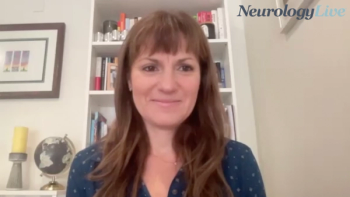
The president and CEO at Project Sleep discussed how inaccurate media portrayals of narcolepsy can contribute to stigma, misunderstanding of symptoms, and delays in clinical diagnosis. [WATCH TIME: 5 minutes]
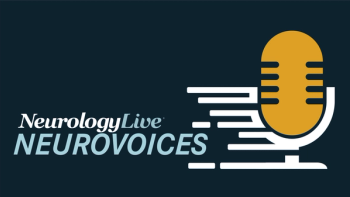
The neurosurgeon at Cleveland Clinic discussed the goals of the AES thalamic neuromodulation special interest group and the major clinical and research priorities shaping the future of neuromodulation for drug resistant epilepsy.

TRN-257, a treatment in development for adults with narcolepsy and idiopathic hypersomnia, is designed to reduce daily sodium exposure relative to existing higher-sodium therapies.

The chief medical officer at Xenon Pharmaceuticals outlined why azetukalner’s selective potassium channel activation offers a different way to suppress hyperexcitable neuronal circuits in focal epilepsy. [WATCH TIME: 3 minutes]

The positive interim findings research represents the first clinical data for ETX101, an investigational cell-type-selective gene therapy, and the first potential one-time disease-modifying treatment for Dravet syndrome.

A new study presented at AES 2025 examined factors linked to declining surgery for pediatric drug-resistant epilepsy and highlighted variability in candidate selection across centers.
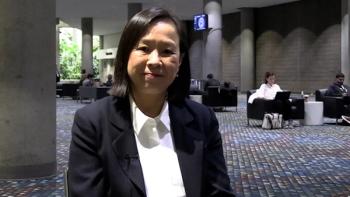
The clinician educator at the University of Toronto discussed the complex challenge of caring for women with epilepsy that demands both clinical expertise and personalized care. [WATCH TIME: 4 Minutes]

Sharon Hesterlee, PhD, president and CEO of the Muscular Dystrophy Association, discussed the 2026 MDA Conference, the significance of its keynote speaker, and the evolving therapeutic landscape in neuromuscular medicine.

A new phase 2 study presented at AES 2025 showed that stiripentol may reduce seizure burden in patients with Lennox-Gastaut syndrome.

Ovid Therapeutics' OV329 shows promise as a safe, effective GABA-AT inhibitor for treating drug-resistant seizures, with strong phase 1 trial results.

Here's some of what is coming soon to NeurologyLive® this week.

Findings from a phase 2 trial highlighted lacosamide's effectiveness and safety in treating neonatal seizures, showing significant seizure reduction and tolerability in patients.

New data highlights cenobamate's effectiveness in reducing focal seizures in Asian populations, showcasing significant improvements and potential long-term benefits for patients.

New AES 2025 data reinforce zorevunersen’s disease-modifying potential in Dravet syndrome, showing durable seizure reduction, functional improvements, and a consistent safety profile.

Test your neurology knowledge with NeurologyLive®'s weekly quiz series, featuring questions on a variety of clinical and historical neurology topics. This week's topic is on autonomic dysfunction in long COVID!

Recent analysis reveals Epidiolex significantly reduces seizures in patients with various developmental epileptic encephalopathies, showcasing its broad effectiveness.

Despite the availability of antiseizure medications approved for Dravet syndrome, a recent survey presented at AES 2025 showed that these therapies remain underutilized in patients.

A study reveals EEG and MRI biomarkers in MOGAD patients with epilepsy, highlighting potential early indicators for refractory epilepsy and improved treatment outcomes.

Following stiripentol’s market authorization in Japan in November 2012, a postmarketing surveillance study was conducted in all patients with Dravet syndrome who initiated treatment.

Take 5 minutes to catch up on NeurologyLive®'s highlights from the week ending December 5, 2025.
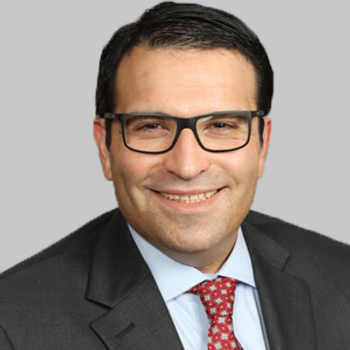
New findings reveal the challenges of treating pediatric epileptic encephalopathy with NBI-827104, highlighting the need for effective therapies.

New STIRUS data unveiled at AES 2025 demonstrate meaningful real-world reductions in seizures, status epilepticus, and healthcare needs with stiripentol in Dravet syndrome.

Merck's MK-2214 shows promise in early Alzheimer’s trials, earning FDA fast-track status for its safety and potential efficacy in slowing disease progression.
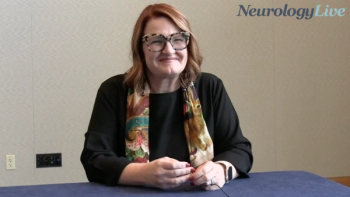
The vice president of U.S. medical affairs and global at Eli Lilly and Company discussed how a subgroup of patients treated with donanemab maintained cognitive benefit for 2 years. [WATCH TIME: 5 minutes]

The executive director of the Institute for Translational Research at UNT Health discussed how to increase representation of underrepresented groups in Alzheimer disease clinical trials. [WATCH TIME: 5 minutes]

A groundbreaking phase 1 trial reveals promising results for a new stem cell therapy targeting Alzheimer disease, advancing to phase 2 studies.

In a study presented at CTAD 2025, patients treated with lecanemab showed a 59% increase in cerebrospinal fluid protofibril concentration at 12 months and a 45% increase at 18 months.

Semaglutide shows no significant impact on Alzheimer disease progression in large trials, despite some biomarker improvements and consistent safety profiles.